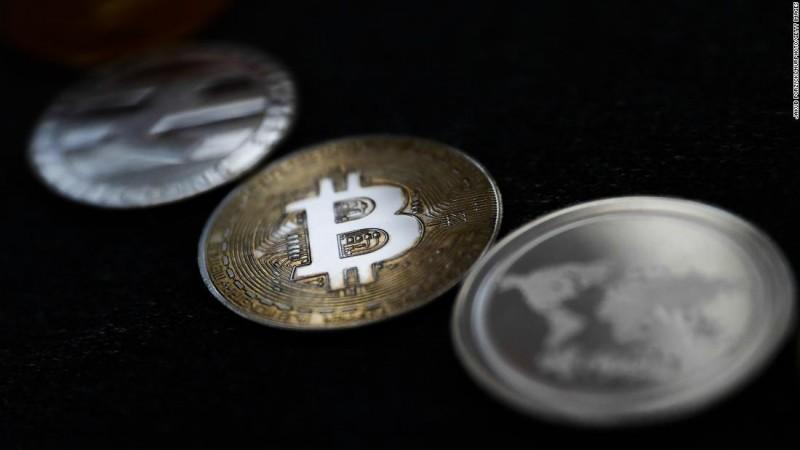
Peer-to-peer (P2P) crypto trading has become one of India's most common ways to buy and sell digital assets. Millions now use it to exchange rupees for stablecoins like USDT through exchange-based P2P platforms. As the trend grows, so do the risks. Scammers are increasingly exploiting loopholes in the system to deceive traders who let their guard down.
According to the Indian Cybercrime Coordination Centre (I4C), over 3.6 million online fraud complaints were reported in 2024, with losses exceeding Rs 22,800 crore, making digital scams one of the country's fastest-growing threats.
Here are some of the most common P2P scams emerging across India's trading community today.
1. Fake Payment Proofs
A buyer sends a small amount to appear genuine, then shares a doctored screenshot showing a much larger transfer. If the seller releases the crypto before verifying the payment, the funds are lost.
How to stay safe: Always confirm the full amount in your bank or UPI app before releasing crypto. Escrow will hold your assets safely until you verify the transfer.
2. Chargeback Scams
A buyer completes payment, receives the crypto, and later claims the transaction was unauthorized. The payment can then be reversed while the crypto is already gone.
How to stay safe: Use traceable payment methods such as IMPS, NEFT, or RTGS. Keep screenshots, chat records, and transaction IDs as evidence of the completed trade.
3. Third-Party Payments and Call Scams
This is one of the trickiest types of P2P fraud because it can happen in more than one way and sometimes involves innocent third parties.
In some cases, the payment reaching your account does not actually come from the buyer but from someone else who is being targeted in a phone or call scam. The fraudster convinces that person to send money, claiming it is for loan verification, a refund, or a government process. When the money arrives, you assume it is from your buyer and release the crypto. Later, the real victim reports the unauthorized transfer, and your name appears in the complaint even though you had no connection to the original fraud.
Another variation involves a buyer intentionally sending payment from a different account—for example, a friend's or business account—whose name does not match their verified name on the exchange. Sometimes, the buyer may say, "My UPI limit is over; can I transfer from another account instead?" This is a common trick to make the mismatch seem harmless. When this happens, your transaction proof no longer matches the payer's name. If the sender later files a complaint, your bank account can be temporarily frozen while the mismatch is investigated.

How to stay safe:
- Accept payments only from the verified name on the buyer's profile.
- Cancel trades where the sender's name differs, even slightly.
- Never agree to use or accept money from a friend's, relative's, or company account.
- Avoid proceeding if someone claims their UPI limit is over and offers another account instead.
- Keep transaction screenshots and chat records in case you need to prove legitimate intent.
4. Identity Misuse
Scammers often use stolen or borrowed IDs to open verified accounts, creating mule profiles that look legitimate. If such an account is linked to a suspicious transaction, the actual owner may face inquiries without knowing how their details were used.
How to stay safe: Trade only with verified merchants who have strong trading histories. Avoid new or incomplete profiles.
5. Off-Platform Deals
Phrases like "Let's continue this deal on WhatsApp or Telegram for a better rate" are classic warning signs. Once you move outside the exchange, there is no escrow, no chat record, and no protection.
How to stay safe: Keep every trade and all communication within the official exchange platform.
6. How to Raise an Appeal in Escrow
If a payment dispute arises, such as a buyer claiming they paid when you have not received funds, the appeal function within most P2P platforms can protect both parties.
Steps to follow:
- Go to the order page of the disputed trade and select "Appeal" before the timer runs out.
- Upload proof such as payment receipts, chat logs, and bank transaction references.
- The platform's support team reviews evidence from both sides and may contact each user for clarification.
- Once verified, the system either releases the crypto to the rightful party or cancels the trade.
Always use the built-in appeal process rather than private negotiation. When an appeal is opened, the crypto remains locked in escrow until the platform resolves the dispute.
Key Red Flags
- Pressure to release or cancel quickly
- Offers far above or below market price
- Payment from an account name that does not match the buyer's
- Requests to move the trade to WhatsApp, Telegram, or direct UPI
- Anyone claiming to be "exchange support" asking for personal details or codes
Do's and Don'ts of Safe P2P Trading
Do:
- Verify every payment directly in your own account
- Trade only through official escrow-protected platforms
- Keep all communication within the exchange chat
- Even if you receive payment from another account, do not return the funds before notifying the escrow or exchange support team
- Use the appeal feature immediately if a transaction seems suspicious
- Trade only with verified merchants who have a good history and positive reviews
Don't:
- Release crypto based on screenshots or messages
- Accept payments from names that do not match
- Conduct trades through private chats or third-party apps
- Skip verification steps because of urgency or pressure
P2P trading remains a convenient and widely used option in India, but scammers continue to evolve their methods. Awareness and caution are the best protection. Always verify, stay on-platform, and use escrow and appeals when in doubt.
A few extra seconds of checking can mean the difference between a smooth trade and an expensive mistake.
















